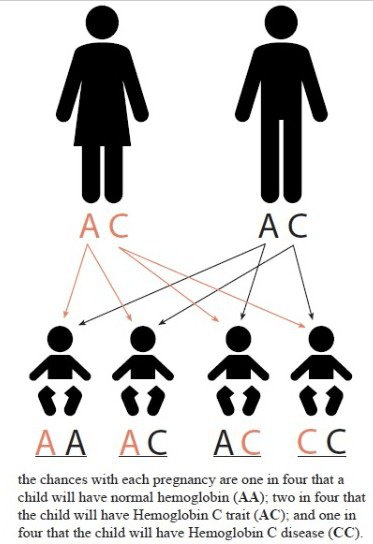
What Does Genotype AC Mean for Your Health? Understanding the Role of Hemoglobin A and C
Fiona Nanna, ForeMedia News
5 minutes read. Updated 12:16AM GMT Sat, 24August, 2024
Genotype AC is a term that may seem unfamiliar, but it plays a significant role in understanding your blood and overall health. The “AC” genotype pertains to the types of hemoglobin present in your red blood cells. Hemoglobin is crucial for transporting oxygen throughout your body, and the genotype AC offers insight into how this process works for you.
What Does Genotype AC Involve?
Hemoglobin A (HbA): The “A” in genotype AC stands for hemoglobin A, which is the normal type of hemoglobin found in most individuals. Hemoglobin A efficiently binds and carries oxygen from your lungs to various tissues and organs, ensuring that your body functions smoothly.
Hemoglobin C (HbC): The “C” represents hemoglobin C, a variant of hemoglobin A. Hemoglobin C is less effective at transporting oxygen compared to its counterpart, hemoglobin A. Individuals with this allele might have red blood cells that are more fragile or have a reduced lifespan, which can impact oxygen delivery.
Genotype AC Explained: When a person has the AC genotype, they possess one normal hemoglobin allele (A) and one hemoglobin C allele (C). Generally, people with genotype AC experience no significant health issues and live normal, healthy lives. However, certain conditions can trigger mild symptoms. For example, severe dehydration or low oxygen levels may lead to symptoms like slight anemia. Despite this, genotype AC is distinct from the sickle cell trait (AS) or sickle cell disease (SS), which are related to different genetic conditions.
Health Implications and Family Planning
While genotype AC itself is considered benign, it holds important implications for family planning and genetic counseling. Individuals with genotype AC do not have sickle cell disease. However, if they partner with someone who carries the S allele (such as those with AS or SS genotypes), there is a risk that their child could inherit a combination of alleles that may result in sickle cell trait or disease.
Understanding your genotype is crucial for making informed decisions about health and family planning. Genetic counseling can provide valuable insights and help you navigate potential genetic concerns.
Genotype AC represents a combination of normal and variant hemoglobin types. While generally benign, it is important to recognize its implications for health and family planning. If you have concerns about your genotype or its effects, consulting with a healthcare provider or genetic counselor can provide clarity and guidance.

